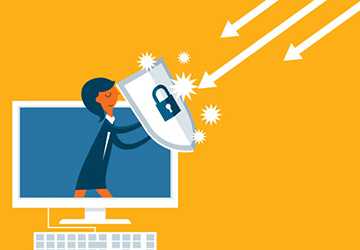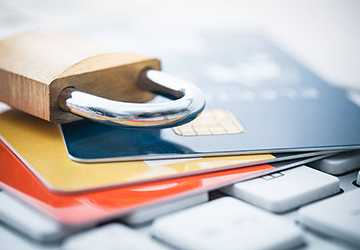6 Tips for Ensuring Cybersecurity in Online Banking
Have you ever worried about your financial security while banking online? With cyber threats on the rise, protecting your money and data is more uncertain than ever.
The emergence of online banking makes managing your finances extremely convenient.
You are no longer restricted by bank opening hours or planning a trip to your local branch.
With just a click or tap of your phone screen, you can check your deposits, schedule bills for automatic payment, check your balance, and more.
However, as banking technology rapidly evolves to provide customers with an optimized experience, so do the strategies used by cybercriminals to exploit it.
Hardly a month goes by without headlines about serious financial data breaches or stolen bank balances. In this blog post, our IT experts present the six best tips for keeping your online banking network secure.
So let's get started!

Your financial situation deserves protection
As someone who may have worked hard for an income, you should have peace of mind knowing that your funds are protected.
Still, it's alarming to keep hearing reports of massive data breaches in the news. You ask yourself: Will I be next?
This uncertainty can create undue stress. You may find yourself constantly wondering if your account is safe every time you log in. But constant vigilance requires mental energy that many of us lack.
Isn't it reassuring to know that your account is strictly protected? By adopting a few simple safety habits, you can gain peace of mind and protect what you deserve.
Close security gaps with minor tweaks
While no system is completely bulletproof, banks have significantly improved their defences against cybercrime. Much of their infrastructure is much more advanced than what typical customers would implement on their own.
However, minor missteps in your banking habits can inadvertently expose vulnerabilities. However, with a few adjustments, you can significantly reduce your risk.
The good news is that the extra security measures don't require changes to your banking habits. However, some basic precautions must be taken over time to increase safety.
6 Important Tips for Lockdown Security
Online banking makes money management more effortless. But hackers tried to steal the money using trickery. If you're not careful, they can take anything.
We need to protect our accounts by creating strong passwords and watching out for fake emails. This stops thieves from stealing our hard-earned money.
Here are some tips for staying safe online:
1. Create complex and unique passwords
Shared passwords are a prime target for hackers. Instead of using login credentials for different websites, create unique passwords for your financial accounts.
Mix random numbers, symbols, and uppercase and lowercase letters. Enabling multi-factor authentication adds another layer, so a password alone cannot grant access.
2. Sign out of your account when finished
Please make it a habit to always log out before closing your browser after completing tasks like checking your account balance or paying a bill. This way, the open session remains inaccessible.
For increased security on sensitive accounts, consider using Private Browsing Mode, which clears your history after closing the window.
3. Keep your software up to date
Downloading the latest security patches for your devices, web browsers, and antivirus software is cumbersome but necessary.
Outdated programs often contain exploitable vulnerabilities that hackers can exploit to steal data.
You can address these vulnerabilities by updating to fix known issues.
4. Beware of suspicious links and attachments
Unfortunately, phishing attacks designed to trick victims into revealing account numbers, passwords, and other information remain widespread.
Make it a rule not to click on links or files accidentally sent in messages that might get stuck in the queue. If there is a problem with a known source, avoid it to stay safe.

5. Only connect via secure networks
We recommend accessing financial accounts only on a trusted private network, not on public Wi-Fi.
An encrypted VPN connection routes your activity through a virtual private tunnel, providing protection when using other networks. This prevents snoopers from monitoring your surfing behaviour.
6. Pay close attention to instructions and warnings
By setting up text or email alerts for new charges and unusual activity, you'll be immediately notified of suspicious incidents.
Also, make a habit of comparing your statements to your actual spending each period. This allows you to detect fraudulent charges or transfers more quickly before significant damage occurs.
Resolutely oppose network insecurity
Ultimately, an occasional minor setback is better than deep regret when you fall victim later on. To make matters worse, many victims have expressed outrage that common missteps may have led to their accounts being compromised in the first place.
You can now take proactive security measures without having to wonder if your data will be the next target.
Relying on the safety net of these tips will help you bank safely and smoothly. Keep moving - and have peace of mind knowing that important information is correct where it should be.
Stay safe and under your control, thanks to some preventative best practices.